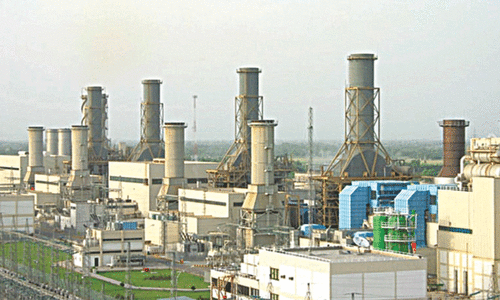ISLAMABAD: The Supreme Court on Tuesday held that the industrial or commercial entities having electricity generation capacity of 500kW or more but using this power for own consumption are not liable to pay the ‘electricity duty’, as imposed under the Punjab Finance Ordinance, 2001.
Headed by Justice Munib Akhtar, a three-judge SC bench, also comprising Justice Hasan Azhar Rizvi and Justice Shahid Waheed, disposed of the plea raised by the Punjab’s irrigation and power department against 44 business entities, including Shaukat Khanum Memorial Cancer Hospital, Kunjah Textile Mills Ltd, Ghazi Power Ltd, Haseeb Waqas Sugar Mills Ltd, Crescent Textile Mills.
The Punjab government had challenged the Lahore High Court decision of Jan 13, 2011.
The controversy at hand revolves around the applicability of Section 13 of the Punjab Finance Ordinance, 2001 under which a levy known as the electricity duty was imposed on these commercial and industrial units.
Punjab govt’s plea against 44 entities, including Shaukat Khanum hospital, disposed of
The facts and circumstances of the case relate to Section 13 as it stood up to 2001 when on Aug 25, 2001 the Punjab governor promulgated a notification that resulted in the application of the levy on the respondent companies. The levy along with the constitutionality of Section 13 was challenged before the LHC.
The then provincial government took a stand before the high court on constitutionality in terms of Article 157(2b) of the Constitution, which allows the provincial government to levy tax on the consumption of electricity within the province.
In its 11-page judgement, authored by Justice Munib Akhtar, the SC observed that these commercial or industrial units produced energy by means of their generators of more than 500kW capacity. But the ruling noted that this energy was for consumption by the respondents (business entities) themselves. There could be no doubt that the respondents were within the definition of “licensee” in terms of the substitution made by the 2001 ordinance, yet this did not bring the respondents within the scope of the levy, the SC ruled.
According to the ruling, it is a cardinal principle of taxing statutes that if more than one reasonable interpretation is possible of the charging or taxing, then the one more favourable to the putative taxpayer is to be adopted, i.e. the one that either takes him out of the charge altogether or results in a reduced or lessened burden.
If the respondents were statutory licensees, all that meant was that if any of them were to supply the energy produced by its generator of more than 500kW capacity to another person, then in respect of that supply, the levy would be attracted, the judgement explained. It would not, however, meant that the self-use of the energy would come within the levy.
Put differently, the words “self-use” in the substituted definition would be only descriptive of who the statutory licensee is (i.e. one whose supply of energy to another person would complete the taxing event) and not amount to a levy of the duty on such self-consumption.
The levy would still require the statutory licensee to supply the energy to some other person, i.e. consumer.
As was clear, this second interpretation was more favourable to the putative taxpayer (i.e. the respondents) and would therefore, on an application of well-settled law, the respondents would not, accordingly, be within the levy of electricity duty, the SC explained.
Published in Dawn, October 9th, 2024















































